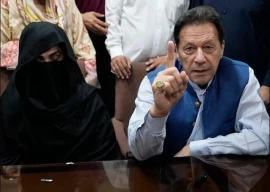Journalists should be careful about using anonymous sources. A reporter should re-check the information given by an anonymous source by a reliable secondary source. The reporter should ensure that his story is accurate, complete, fair and balanced with the information provided by the anonymous source.
This was the advice offered by Indiana University’s Professor Sherry Ricchiardi at a one-day training workshop, Media Ethics and Investigative Journalism, organised by the Lahore US Consulate General on Tuesday.
When facing an ethical dilemma, Prof Ricchiardi said, a reporter should tell the truth and minimise the harm. She said a reporter should also be clear on his journalistic purpose. Prof Ricchiardi said reporters should always seek out human voices and find people who are affected by the violence and include their personal stories, opinions and goals in news reports. She said reports should also avoid always quoting leaders or spokespersons.
A reporter should report the word of ordinary citizens who may voice opinions shared by many in the community, Professor Ricchiardi said. She said that if there were two or more sides in a conflict, a reporter should ask the opposing sides questions that may reveal common ground.
She said that words like ‘devastated,’ ‘tragedy’ and ‘terrorised’ should be avoided to describe what has happened. “Don’t use them yourself or it may appear you are taking sides. One can, however, describe the scene of a bombing or an attack and show the devastation,” she said.
The professor said that reporters should avoid emotive and imprecise words, adding that making an opinion into a fact should also be avoided.
Professor Ricchiardi said that investigative reporting was a time consuming job and was different from news reporting as it involved in-depth investigation. She said an investigative reporter should be quick at questioning facts and verify every fact in a report.
Some 30 reporters from both print and electronic media attended the workshop.
Imdad Bhatti, a participant, said the workshop had helped him understand how to file better reports on sensitive issues.
“’Passionate’ and ‘committed’ are the two words I would use to describe Pakistani journalists. And these two words are the best words to describe qualities in any journalist,” she added.
She said no story in the world is worth dying for. “This doesn’t mean reporters shouldn’t be courageous, rather they should be smart in getting the information across,” she said.
Professor Ricchardi holds a PhD degree in journalism from Iowa State University. She is a senior writer at American Journalism Review magazine
(Read: Regulating the media)
Published in The Express Tribune, May 23rd, 2012.
COMMENTS (7)
Comments are moderated and generally will be posted if they are on-topic and not abusive.
For more information, please see our Comments FAQ

















Our journalist needs more than this workshop, they needs regular workshops. Most of the breaking news tickers are flawed... i still remember at the time of Benazir murder... that there was firing at Bilawal house,, but there was not such incident... another breaking news was earthquake in Karachi defence ... this news was in the midnight.. no channel showed any video footing or proof... there are so many incidents... Why are we criticising the scholar,,, she is qualified and holding professional degree in journalism... very sadist approach .. criticsing some one based on her nationality...
My comment without taking sides but general for all what Allah has said which is following:
When You are Attacked, Do not Panic and Do Not Spread Rumour 4:83 "If any matter regarding security, or fear, comes to them they make it publicly known, but if they had referred it to the messenger and to those entrusted from them then it would have been known by those who studied it from them. Had it not been for God's grace upon you and His mercy, you would have followed the devil, except for a few."
Hahaha those are teaching us who have proved their professionalism in Iraq and Afghanistan. lol
All these suggestions should be taken seriously by express tribune and express news channel MORE than any other news source in Pakistan !
Silly article. God know what these Americans think of themselves.
This lecture is better delivered to American Journalists. Pakistanis know how to publish news.Go away and go home.